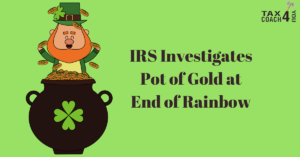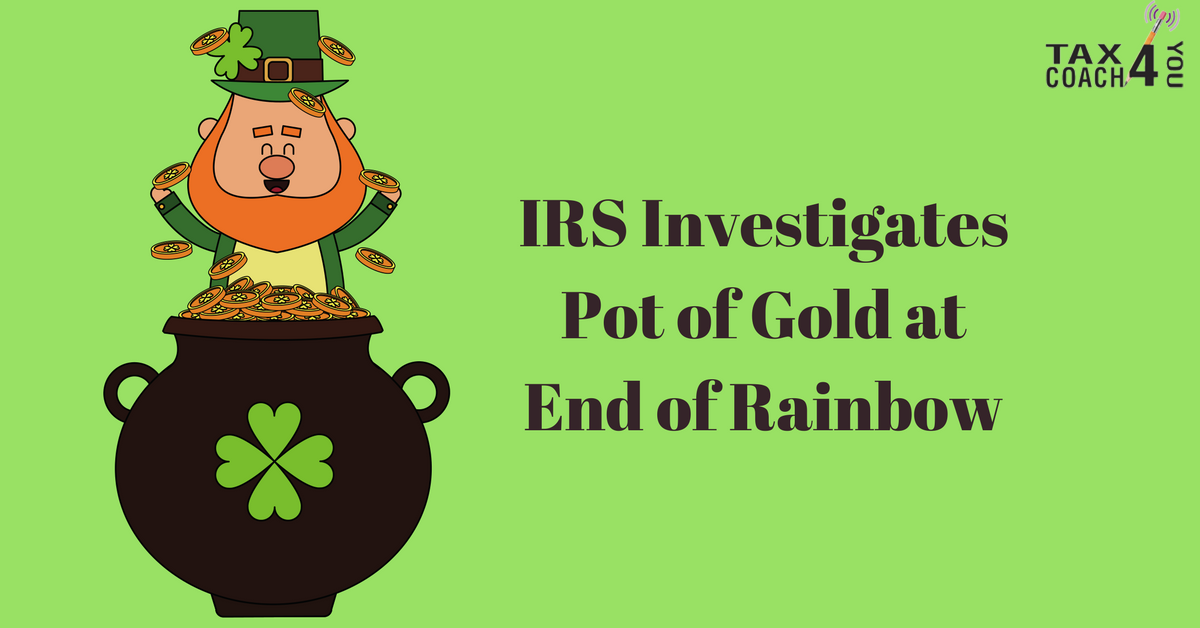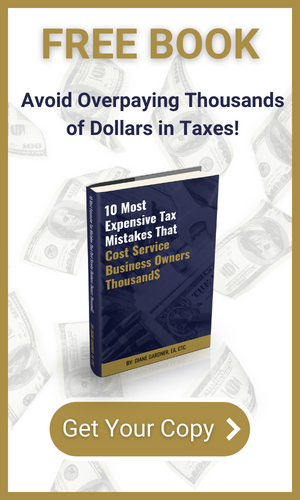Tax Code Special Rules Help IRS Get Leprechaun’s Treasure 
St. Patrick’s Day is here, and every “Irish for a day” tippler in your social circle will take advantage of this convenient excuse to haul grandma out of the house for a little day-drinking. (It seems unnecessary on a Saturday, but whatever.) Faux-Irish saloons across America are tapping kegs of Guinness, pouring shots of Jameson, and covering their walls and ceilings in every Celtic cliche they can find: the shamrocks, the hats, the green beads, and of course, the leprechaun jealously guarding his pot of gold at the end of the rainbow.
Now, leprechauns are usually pretty happy little fellas. Wouldn’t you be happy if you found a pot of gold in some misty bog? But this isn’t always true, as you’ll see if you look at the University of Notre Dame “Fighting Irish” mascot. Have you ever wondered why that little guy is so hostile? Maybe it’s because he just discovered the IRS wants a share of his stash!
Unfortunately for our diminutive Hibernian friend, the tax code has all sorts of special rules to help the IRS dig their hands deeper into his treasure:
- Code Section 61 defines gross income as “all income from whatever source derived.” The code does go on to carve out all sorts of exclusions from this broad definition. For example, Section 101 excludes life insurance death benefits and Section 105(b) excludes employer-provided health benefits. Unfortunately, there’s no exclusion for pots of gold at the end of the rainbow. (Sounds like the National Organization of Leprechauns needs to hire some better lobbyists!)
- Income received in the form of property is taxed under the rules of Code Section 83(b). Generally, the finder owes tax on the fair market value of property as of the date it’s found. In the case of gold, where there’s a public market to establish value, our leprechaun takes the average of the highest and lowest quoted trading prices for the yellow metal on the day he finds his treasure. If he finds it on a weekend, he’ll need to take the average price for the Friday and Monday bookending the day he finds it.
- Gold is considered a capital asset. This might seem like good news, as gains are generally taxed at preferential rates capped at 20%. However, precious metals are classified as “collectibles,” making them subject to special higher rates of up to 28%. Gains on gold are also subject to the 3.8% “net investment income tax” for leprechauns with adjusted gross income above $200,000 (single filers) or $250,000 (if filing jointly with Mrs. Leprechaun).
- Finally, there’s a special prohibition against holding gold coins in IRAs or other retirement accounts. This may not sound like a big deal at first. However, Irish folklore holds that leprechauns live for 300 years, which makes saving for retirement especially crucial.
Now, don’t go feeling too sorry for your pint-sized prospector. After-tax gold isn’t as much fun as pre-tax gold. But it’s still better than no gold at all. And with gold currently trading at $1,300 per ounce, there’s plenty in the pot to pay for good tax-planning help. Conveniently, that’s where we come in. So call us when you’re ready to pay less. Don’t count on finding a four-leaf clover when you can follow the rainbow to a plan!




